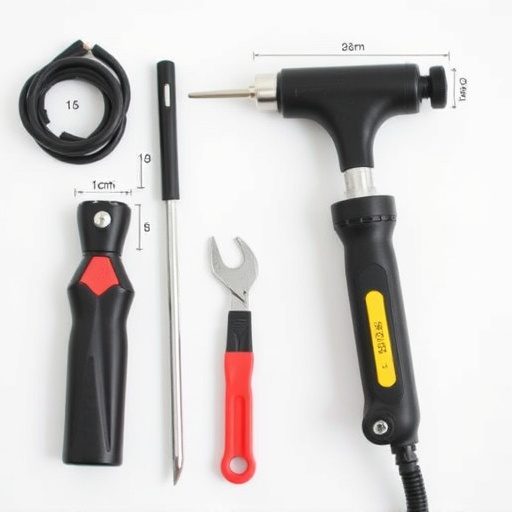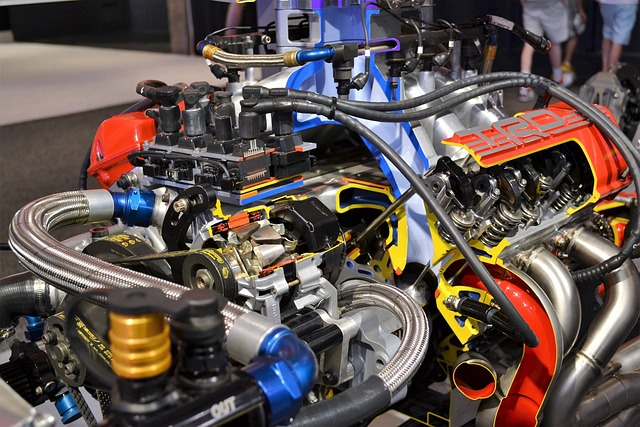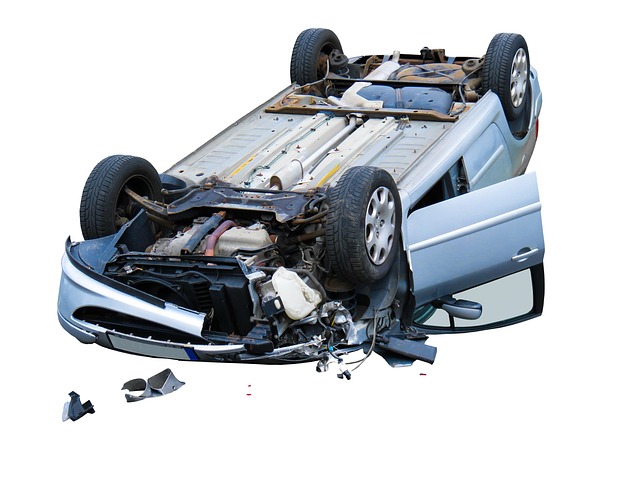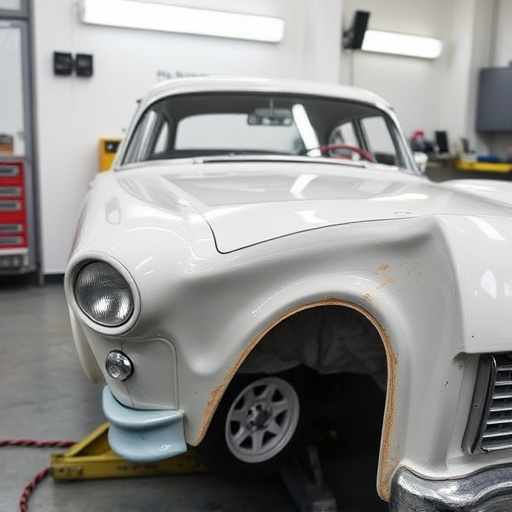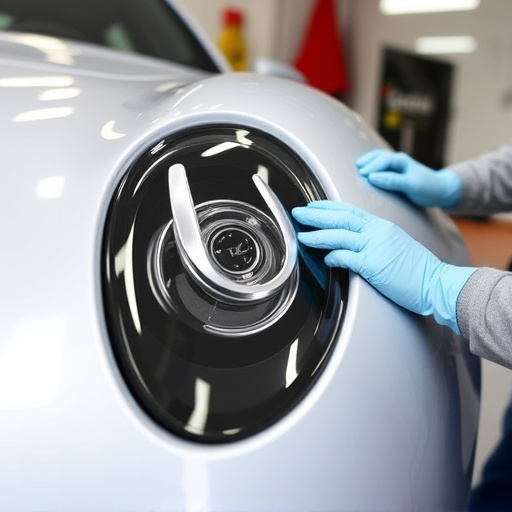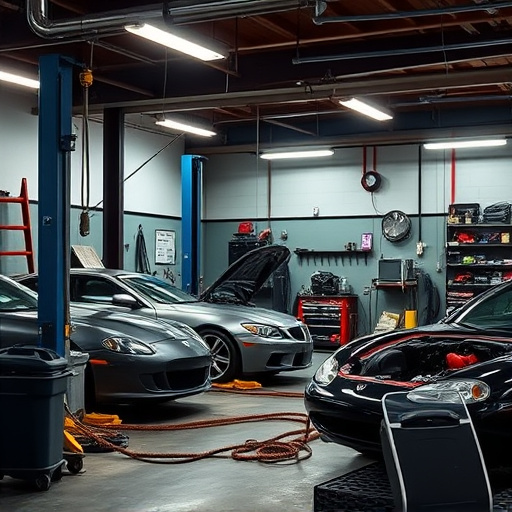Highway collision centers provide vital services for vehicle repair and road safety, offering comprehensive solutions from minor to severe accidents. They utilize advanced tools, techniques, and technology for precise frame alignment, part replacement, and aesthetic restoration, ensuring vehicles return to pre-accident condition. These centers prioritize safety, efficiency, and customer satisfaction through cutting-edge practices and equipment, positioning themselves as leaders in the automotive repair industry.
A closer look at highway collision centers reveals more than just repair shops. These facilities play a crucial role in road safety, providing essential services that extend beyond vehicle repairs. From understanding their multifaceted roles in managing accidents to exploring the key features and modern technologies they employ, this article delves into what makes these centers vital hubs for roadside assistance.
- Understanding Highway Collision Center Roles
- Key Features and Services Offered
- Safety Measures and Modern Technologies Employed
Understanding Highway Collision Center Roles

Highway collision centers play a pivotal role in ensuring road safety and facilitating efficient vehicle repairs. These facilities are equipped to handle a wide range of incidents, from minor fender benders to severe accidents. Their primary function is to provide immediate assistance to affected vehicles and their occupants. Collision centers often act as a one-stop shop for various services, including fleet repair for commercial vehicles and scratch repair for personal cars.
In addition to emergency response, highway collision centers offer comprehensive body shop services. Skilled technicians utilize advanced tools and techniques to assess damage, perform repairs, and restore vehicles to their pre-accident condition. The availability of these specialized services is crucial in minimizing downtime for vehicle owners and keeping roads safe for everyone.
Key Features and Services Offered
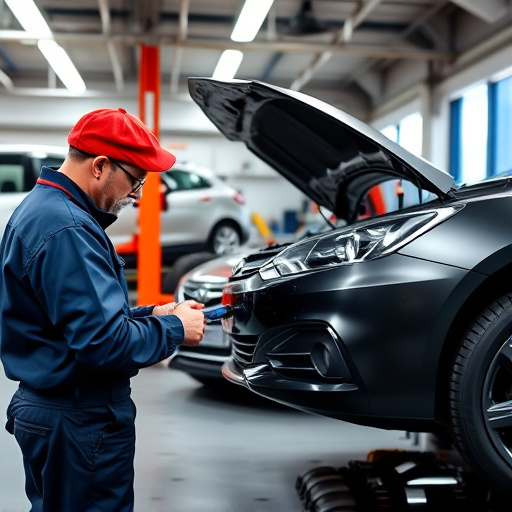
A highway collision center is a specialized facility designed to handle the intricate process of repairing damaged vehicles, ensuring they return to the road in optimal condition. These centers boast several key features that set them apart from conventional auto repair shops. One of the primary services offered is car restoration, where skilled technicians meticulously rebuild and revive damaged cars, restoring them to their pre-accident condition. This involves a comprehensive assessment, part replacement, and careful restoration of aesthetics and performance.
In addition to car restoration, highway collision centers provide a wide range of services, including fender repair and car paint services. Advanced equipment and technology enable these facilities to accurately align frames, straighten body panels, and expertly apply high-quality paints, ensuring vehicles not only drive safely but also look as good as new. This level of expertise is crucial for customers seeking top-notch repairs and a seamless return to their daily routines on the road.
Safety Measures and Modern Technologies Employed
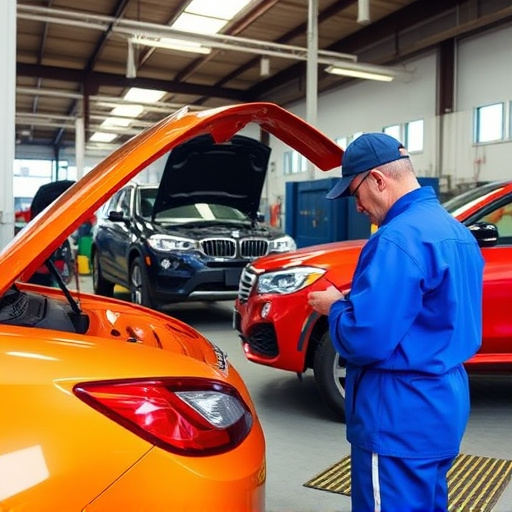
In the realm of highway collision centers, safety is paramount. These facilities employ a myriad of advanced safety measures and modern technologies to ensure the well-being of both their staff and the vehicles they work on. From state-of-the-art sensors that detect even the subtlest of dents to sophisticated computer-aided design (CAD) software that aids in precise collision damage repair, highway collision centers have embraced innovation.
The integration of advanced technologies like robotic welding systems, laser alignment tools, and automated painting booths not only streamlines the body shop services but also enhances accuracy and efficiency. These modern solutions allow for more effective collision damage repair, ensuring cars are restored to their pre-accident condition or even beyond. This commitment to safety and technological advancement positions highway collision centers as leaders in the automotive repair industry.
Highway collision centers play a vital role in ensuring road safety and efficient vehicle repairs. By understanding their key features, services, and the advanced technologies they employ, we can appreciate their importance as essential facilities in today’s automotive landscape. These centers are not just places for car fixes; they represent a commitment to keeping highways safe and traffic flowing smoothly.
